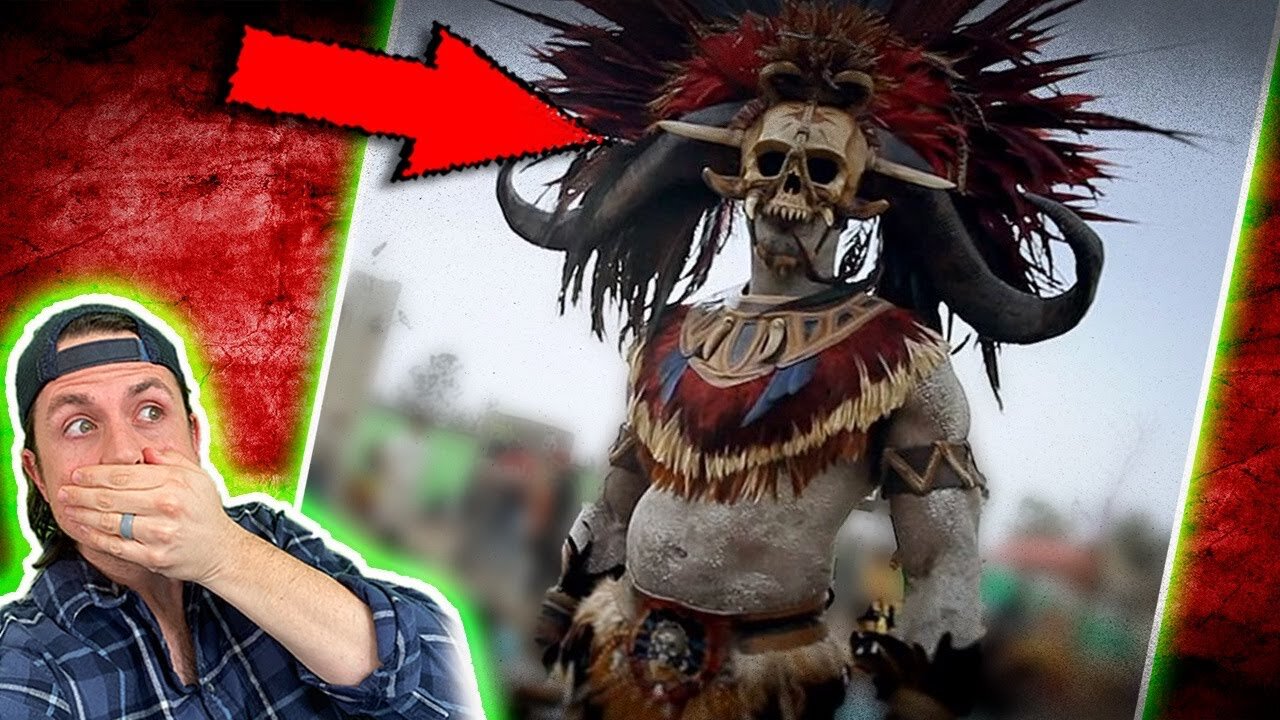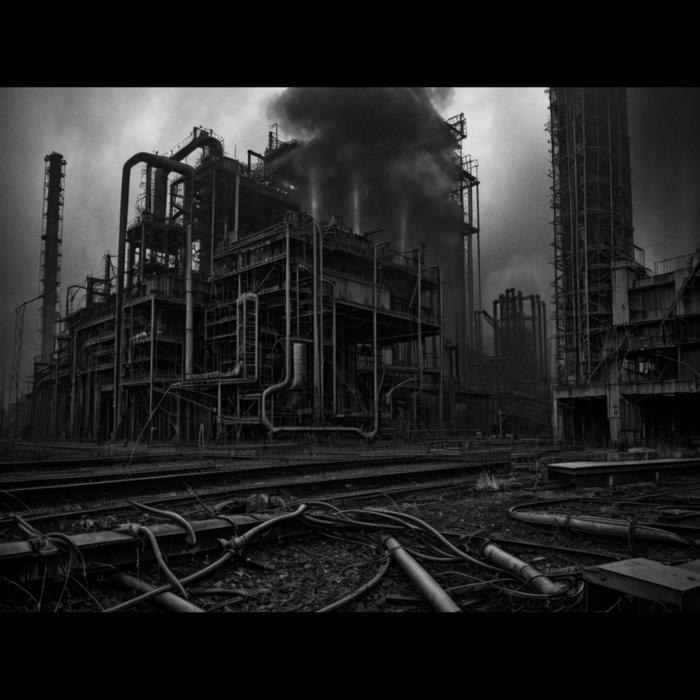Nigerian Death Factory: Unveiling The Dark Truth Behind The Headlines
The term "Nigerian Death Factory" has gained significant attention in recent years, sparking debates and investigations worldwide. This alarming phrase refers to the organized crime networks operating in Nigeria that engage in human trafficking, organ harvesting, and other illicit activities. Understanding this phenomenon is crucial for global awareness and combating these criminal enterprises.
As the world becomes more interconnected, the reach of these criminal syndicates expands beyond borders. The Nigerian Death Factory issue highlights the darker side of globalization and the urgent need for international cooperation to dismantle these operations. Governments, law enforcement agencies, and human rights organizations are working tirelessly to address this growing threat.
This article aims to provide a comprehensive overview of the Nigerian Death Factory, its origins, operations, and the efforts being made to combat it. By delving into the details, we hope to shed light on this critical issue and encourage readers to take action in supporting initiatives aimed at eradicating such criminal activities.
Read also:Ahegao Eyes Real Exploring The Phenomenon In Depth
Table of Contents
- Introduction to Nigerian Death Factory
- Historical Background and Origins
- Criminal Networks: Structure and Operations
- Human Trafficking: The Silent Epidemic
- Organ Harvesting: A Growing Concern
- Economic Factors Driving the Phenomenon
- Government Response and Policies
- International Efforts and Cooperation
- The Role of Technology in Combating the Threat
- Ways You Can Help
- Conclusion and Call to Action
Introduction to Nigerian Death Factory
The term "Nigerian Death Factory" refers to the organized crime networks that have emerged in Nigeria, primarily focusing on human trafficking and organ harvesting. These networks exploit vulnerable populations, particularly women and children, for financial gain. The scale of these operations is alarming, with reports indicating thousands of victims annually.
These criminal syndicates operate with sophisticated methods, often involving corruption, intimidation, and violence. Their reach extends beyond Nigeria's borders, affecting countries across Africa, Europe, and Asia. The complexity of these operations makes it challenging for law enforcement agencies to dismantle them effectively.
Historical Background and Origins
The origins of the Nigerian Death Factory can be traced back to the early 2000s when reports of human trafficking and organ harvesting began to surface. Initially, these activities were limited in scope but gradually evolved into large-scale operations. Economic hardships, political instability, and weak law enforcement contributed to the rise of these criminal networks.
Key Historical Events
- 2003: First reports of organ trafficking in Nigeria.
- 2010: Increased international attention due to high-profile cases.
- 2015: Formation of international coalitions to combat the issue.
Historically, Nigeria's strategic location and large population have made it a hub for criminal activities. The lack of stringent regulations and enforcement mechanisms further exacerbated the problem.
Criminal Networks: Structure and Operations
The structure of these criminal networks is hierarchical, with leaders coordinating operations from the top. Recruiters, transporters, and enforcers play crucial roles in executing the plans. The operations are often funded through illegal activities such as drug trafficking and arms smuggling.
Operational Tactics
- Recruitment of vulnerable individuals through deception.
- Use of advanced technology for communication and coordination.
- Establishment of safe houses for holding victims.
These networks are highly adaptable, constantly evolving their methods to evade detection. Collaboration with corrupt officials and law enforcement personnel further complicates efforts to dismantle them.
Read also:Sunburn Tits Understanding Causes Symptoms And Effective Treatments
Human Trafficking: The Silent Epidemic
Human trafficking is one of the primary activities associated with the Nigerian Death Factory. Victims are often lured with promises of employment or education opportunities, only to be exploited for labor or sexual purposes. Women and children are the most vulnerable groups targeted by these criminals.
Data from the International Organization for Migration (IOM) indicates that over 80% of trafficking victims are women and children. The psychological and physical trauma inflicted on these victims is immense, with many suffering long-term consequences.
Organ Harvesting: A Growing Concern
Organ harvesting is another significant aspect of the Nigerian Death Factory. Criminal syndicates target individuals for their organs, which are then sold on the black market. The demand for organs, particularly kidneys and livers, drives this lucrative trade.
According to the World Health Organization (WHO), organ trafficking is a global issue affecting millions of people. The lack of legal organ donation systems in many countries contributes to the rise of illegal organ markets.
Economic Factors Driving the Phenomenon
Economic factors play a crucial role in the proliferation of the Nigerian Death Factory. High poverty rates, unemployment, and lack of education opportunities make individuals more susceptible to exploitation. Criminal networks exploit these vulnerabilities to recruit victims and expand their operations.
Key Economic Indicators
- Poverty rate in Nigeria: Over 40% of the population lives below the poverty line.
- Unemployment rate: Approximately 33% as of 2021.
- Lack of access to education: Millions of children are out of school.
Addressing these economic challenges is essential in combating the Nigerian Death Factory. Investment in education, job creation, and social welfare programs can help reduce the pool of potential victims.
Government Response and Policies
The Nigerian government has taken several steps to address the issue of the Nigerian Death Factory. Legislation such as the Trafficking in Persons (Prohibition) Enforcement and Administration Act has been enacted to criminalize human trafficking and organ harvesting. Law enforcement agencies have also increased their efforts to dismantle these criminal networks.
Despite these measures, implementation remains a challenge due to corruption and lack of resources. International organizations and NGOs are working closely with the Nigerian government to strengthen enforcement mechanisms and provide support to victims.
International Efforts and Cooperation
International cooperation is vital in combating the Nigerian Death Factory. Countries affected by these criminal activities have formed coalitions to share intelligence and resources. The United Nations and other global organizations have launched initiatives to raise awareness and provide funding for anti-trafficking programs.
Technology plays a crucial role in these efforts, with advancements in data analytics and artificial intelligence aiding in the identification and tracking of criminal networks. Collaborative platforms enable law enforcement agencies worldwide to work together more effectively.
The Role of Technology in Combating the Threat
Technology is a double-edged sword in the fight against the Nigerian Death Factory. While criminals use advanced tools to facilitate their operations, law enforcement agencies leverage technology to monitor and disrupt these activities. Social media platforms and mobile applications are increasingly being used to report suspicious activities and provide support to victims.
Technological Innovations
- Blockchain for secure data sharing among agencies.
- AI-driven analytics for pattern recognition and prediction.
- Mobile apps for reporting and tracking incidents.
Investing in technology can significantly enhance the effectiveness of anti-trafficking efforts, providing real-time data and enabling proactive interventions.
Ways You Can Help
Individuals and communities can play a crucial role in combating the Nigerian Death Factory. Raising awareness, supporting victims, and advocating for policy changes are essential steps in addressing this issue. Volunteering with NGOs and participating in fundraising activities can also make a significant impact.
Actions You Can Take
- Spread awareness through social media and community events.
- Support organizations working to combat human trafficking and organ harvesting.
- Report suspicious activities to local authorities or international hotlines.
Every action, no matter how small, contributes to the larger goal of eradicating these criminal activities.
Conclusion and Call to Action
The Nigerian Death Factory represents a grave threat to global security and human rights. Understanding its origins, operations, and the factors driving it is crucial in developing effective strategies to combat it. Governments, law enforcement agencies, and individuals must work together to dismantle these criminal networks and support the victims.
We urge readers to take action by spreading awareness, supporting organizations fighting against human trafficking, and advocating for policy changes. Together, we can make a difference and help put an end to the Nigerian Death Factory.
Share this article with your network and encourage others to join the fight against these heinous crimes. Your voice can help save lives and bring justice to victims of the Nigerian Death Factory.
Unveiling The Enigma: The Complete Guide To Smokeebee Face
Turkey Tom Girlfriend Cheating: A Comprehensive Exploration
Unveiling The Power Of REMA DRI VAC Corporation: A Comprehensive Guide

Inside a Nigerian DEATH factory (MATURE AUDIENCES ONLY)

Death Factory Eschatology Mirocaw Ignis Fatum

Death Factory by randolfo on DeviantArt